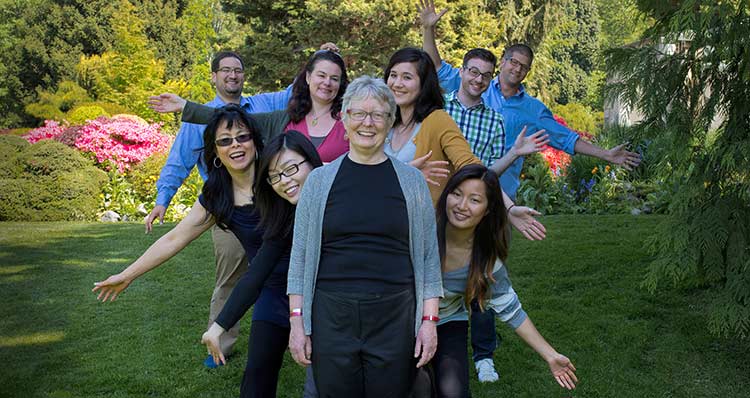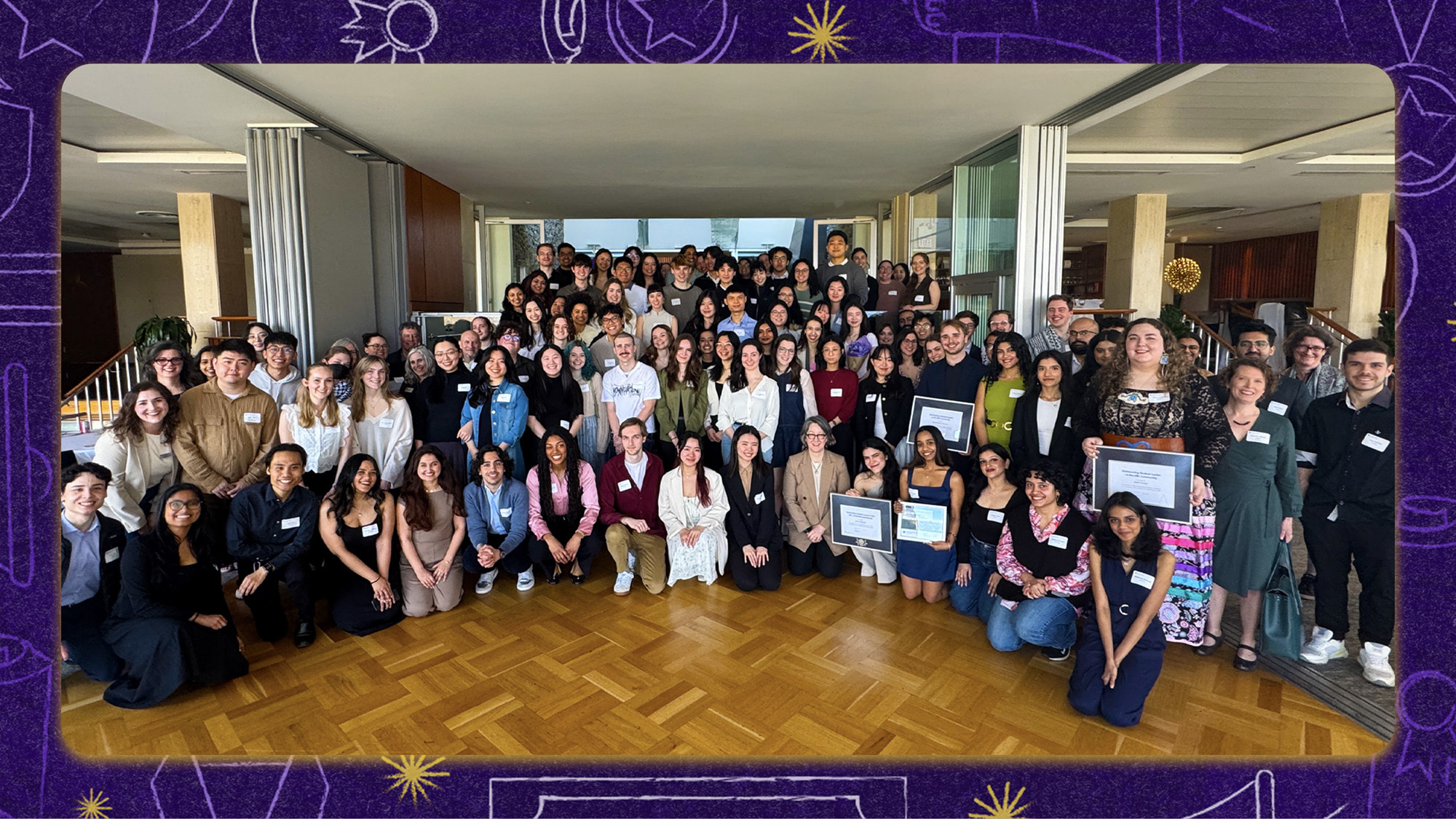

By Sara Young
As a graduate student, Professor Margery Fee was used to hearing, “You want to do a thesis on Canadian literature? Is there any?”
Professor Margery Fee completed her PhD on Canadian literary history at a time when the topic was not as popular as it is today.
“People just laughed and said, ‘You want to do a thesis on Canadian literature? Is there any?” Fee says of her years as a graduate student.
Since then, Canadian literature has become a legitimate area of study, and Fee has remained committed to giving students “subject matter that they are interested in.”
Fee teaches in the Department of English Language & Literatures and chairs the Canadian Studies Program. and directs Arts One, the renowned first-year program in Arts. Fee’s work with students was recognized in 2001 and again in 2004 when she received Just Desserts Awards, given on behalf of students by the Alma Mater Society.
Most recently, Fee received the 2005/06 Margaret Fulton Award for her contribution to student development and the University community. In 2008, she was Distinguished Scholar in Residence at the Peter Wall Institute of Advanced Studies, writing about how some discourses of genetics/genomics contribute to the racialization of minority groups, particularly Aboriginal people.
After receiving her PhD from the University of Toronto in 1981, Fee began examining the work of Indigenous peoples in Canada, Australia, and New Zealand. Her PhD dealt with English Canadian romantic nationalist literary criticism, and that lead to her interest in national and ethnic identifications. It was this work that motivated Fee to fill a gap at UBC by starting courses looking at First Nations literatures. “When I came to UBC, there was no one teaching this,” she says. “I was prepared to teach it, students were very eager to have this subject taught.”
Through her work in the classroom, Fee has demonstrated a commitment to fostering student engagement at UBC. “Students do better in a course where they actually are engaged with everything they’ve got: their hearts, their minds, everything,” she says.
Engaging students has included using innovative approaches. Students in her course on First Nations literature examined oral histories and memory through a project at local elementary schools. Through this, Fee had her students “go and tell the oral story…and then go back the week following and see how much [the elementary students] do remember.”
Fee notes that her university students were excited to learn how much the younger students could remember. “A group of them could put together the story almost perfectly,” she says.
Fee has also worked to cultivate student interest in learning through the Arts One program, where 100 first-year students complete an interdisciplinary program through the reading of great books. The program has won several awards, and focuses on critical thinking, writing skills, and class participation. Over the past 10 years, half of the recipients of the Governor General’s Silver Medal for outstanding students in Arts have been Arts One alumni. “We teach university-level reading and university-level writing very intensively,” Fee says of the program. “And I think it’s a really valuable skill. And they talk about each other’s writing in ways that I don’t think happens very often in other teaching. It’s a marvelous program and the students who take it have to be very dedicated”.


